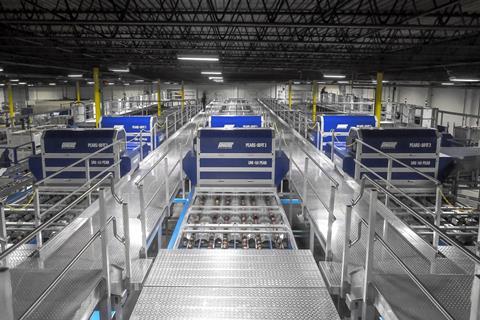
US cooperative Diamond Fruit Growers says last year’s installation of a new, 18-channel grading line has led to a major improvement in the quality and consistency of its pear output – to such an extent that retailers and rival packers have reportedly flocked to the facility to see the technology in action.
As revealed by Unitec Group, the Italian company whose division Unisorting was responsible for designing the machine, Diamond’s decision to replace modified apple-sorting lines and install the Pears Sort 3 system at its packhouse in Hood River County, Oregon, has caused something of a stir in what remains very much the country’s pear-producing heartland.
“We have received many comments about the line and all have been positive,” commented David Garcia, president of the cooperative, which is one of the oldest and largest suppliers of fresh pears in North America.
“Other packing houses have come to tour the line and have expressed how efficient and smoothly it runs,” he added, noting that it was now possible to grade and separate different product classifications for different customers.
“Retailers that have received our product have commented on our fruit quality and how very consistent it is. We have had several top retailers stop at our plant just to tour the line and they have been very impressed with the operation.”
According to Unitec, pear packhouses in the US have tended to prefer direct packaging lines, apparently in the belief that pre-sorting lines lack delicacy and could therefore damage the fruit.
However, the company suggested the results obtained with Diamond’s new grader could represent a watershed moment for the US north-west pear industry.
“A pear that enters the Unitec line without skin damage won’t end up with any new markings after it has completed its journey,” Garcia explained. “This is what we were hoping for.”
The upgrade has also enabled Diamond to run shifts with just 12-15 staff, compared with 75 previously, he added: “Our ability to process more bins per hour has increased. Before, with two lines, we were able to run 70-75 bins per hour; with the new line, we ran 100-140 bins per hour.”



